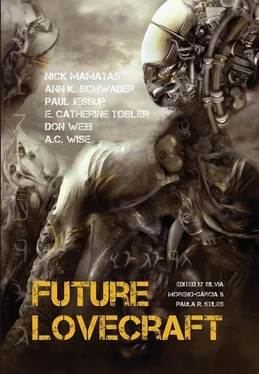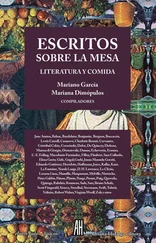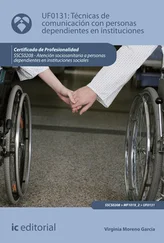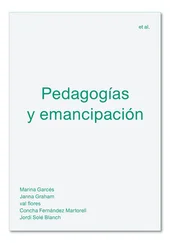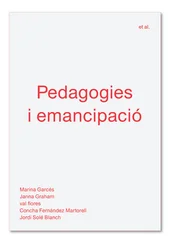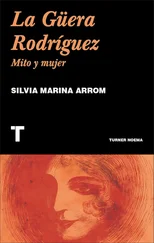It was at the university that my true work began, and an intoxicating blend of excitement and curiosity drove me forward, even as exhaustion threatened to drag my mind from those soaring pinnacles of knowledge that we have glimpsed in the gelid mists of our studies. I was alone, utterly alone, but for my rescuer who—it appeared—was to be my liaison. He helped me negotiate the streets of that wretched city, sweat crawling down my spine, and taught me the few words of Arabic that helped me survive. In the evening, he would bring a strong, sweet coffee, which we drank to the dregs together, discussing the struggles of research, the petty bureaucracies that exist in all universities. Between us, there was that flash of friendship that comes when two minds strike against each other, flint on steel; it was a friendship that would bring many rewards.
Mister Nassar, you see, had a brother in Giza who worked as a phylogeneticist with a team of French scientists. He had agreed to sample the manuscript and perform the necessary tests to verify its authenticity.
It took five days for the results to arrive from Giza, five days of the breath of Hades on my neck as I tried to fill my time reviewing my students’ Michaelmas papers in a hotel infected by fleas and Americans, five days of cryptic responses from my liaison: “Soon, usstaz , it will be soon.” The paper, when it came, was heavily worn and bore many official stamps. I opened it carefully, reverently, and it is that which I found inside—the words Mister Nassar translated for me from Arabic—that I present to you today. For indeed, I learned that this book had been housed in the Alexandrina Bybliothece—and there must have been many others like it—but even this, colleagues, members of the governing board, is not why I come before you.
The fateful words of dear Mr. Nassar are burned into my mind forever: “The skin,” he said, “the skin, sahib . It is not sheep.” And then he touched my hand. “Human.”
A chill still runs up my spine when I think on it. I have been a scholar for some years, and I have given all of my career and most of my eyesight to the study of books. When I sleep, I smell the musty scent of their pages; when I wake, my fingers explore them, probe their bindings, the threads that stitch them together. I know the soft velvet of the flesh side and the smooth, oiled surface of the hair side. I have studied the pattern of follicles, traced the network of veins that undergirds our most precious documents, the records of Western civilisation, the rise and fall of human knowledge. I have devoted my life to recovering the irrecoverable and rebuilding what was lost, searching out its ghosts and giving them flesh within monographs and articles.
But to learn that the skin I touched was human skin, the network of veins cousin to mine, and that the knowledge I had sought to reinscribe in the hearts of my students was written on the fleshly fabric of their would-be ancestors….
It was a shock whose subtle charge still haunts my nights.
I looked to Mister Nassar, and he to me, and in our blank, uncomprehending gazes, we knew we shared a secret that would shake the foundations of the Academy.
That was six months ago and it could have been six years. He and I, joined by the strange bonds of discovery, left Cairo that day, clutching the codex, but shuddering at the weight of its presence, for we knew, deep in our hearts, that it was not just one book.
Indeed, Mister Nassar’s connections were invaluable. Discretely, we were able to obtain samples of manuscripts from across the country—from Plato, Pythagoras, Aristophanes of Byzantium, Apollonius of Rhodes. For one and all, the answer was the same. “The skin, the skin,” he had said. “Human.” The Great Library of Alexandria was a charnel house whose secrets had been hidden in the fire that immolated all those stretched, disfigured bodies.
In the intervening months, we have visited many archaeological sites, studied the ancient midden heaps of Heliopolis, Sharm El-Sheikh and Aswan. Beneath the layers of refuse were bones, bones, bones, so many of them that it sickened me. Whole villages had been wiped out, their inhabitants sacrificed to the altar of the great gods of our civilization. A single codex could have required as many as three hundred hides and it was becoming increasingly clear that those of the young were valued most highly for their smoothness, their freedom from blemish. Children. A seven-year-old child could provide enough for twelve folios; an adult, perhaps sixteen, though the quality would suffer for it.
‘The unspoken holocaust’, we called it, as we huddled in tents that clung to the skin of the desert. We were as thick as thieves, he and I, whispering our secret again and again. “Human,” he would say, until the words meant nothing and the charred midnight air snatched them away.
Three days ago, an ancient bus knocked its way over potholes and hard rock, depositing us at last in the village of Deir el-Bahri. It was there we received a second letter, this one even more dishevelled, the number of stamps seeming to have taken to heart God’s commandment to be fruitful and multiply. Mister Nassar opened it, fingers shaking, but his face turned strange as he read the Arabic within.
For a second time, he took my hand and I wondered at the calluses on his finger, the rough texture of them, the way the pads were paler than the coffee-coloured knuckles. They were beautiful, those hands, the skin of them.
“It is my brother,” he said. “He must speak with us.”
We boarded the bus for a second time, proffered bills to the surprised driver, who made a sign and ushered us aboard. The ride to Cairo was long and, try as I might to question my companion, he would reveal nothing of our new mission and what might await us.
His brother could have been a twin. They had the same deep-set eyes, the same nervous manner about them. But whereas the one had the tongue of a linguist, the other spoke only in halting English, stumbling over words until he and his brother turned to a guttural Arabic, with only occasional breaks for breathless translation.
He led us into the university science complex where the smell of formaldehyde drifted in clouds from behind shut office doors. A rattling elevator brought us to the bottommost level and there, following him as Theseus followed his ball of yarn through the subterranean system of tunnels, we saw a machine—a great beast of a thing, a wonder of modern mechanical genius. I don’t pretend to understand most of what the second Nassar told us, only that he had been shocked by the discovery as much as we had, and that there was a way—perhaps—for something to be done….
What would you do, colleagues, with the weight of that knowledge hanging upon you? What would you do if you were offered a chance to set it right? The press of a button and that slaughter of innocents prevented? Would you have the strength of will to silence Aristotle, to let the words which shaped civilisation go unremembered, unpreserved, reduced to whispers and empty air? Would you preserve instead the genetic code of that dead, forgotten mass of bodies? For they are dead, those slaughtered children, flayed for the libraries, flayed so that we might—
They are dead . A plague could have taken them and history would not have cared one jot. They would still be dead today.
But it was not a plague. It was men. Men who desired books, who knew these things must last, that it meant more than those hundred thousand lives….
The pyramids were built on such sacrifices. Who are we to say?
The three of us—myself and the twin Nassars—took wine that night, though I had never seen my companion drink a drop in all our time, despite everything. We swallowed morbid thoughts with every draught, drank down our fears, our apprehensions. But as the sun sent pale fingers of light creeping through the window, across the table and its scattered papers, its empty bottle, I hailed a taxi to the airport and left Mister Nassar and his brother to their grim duty.
Читать дальше
